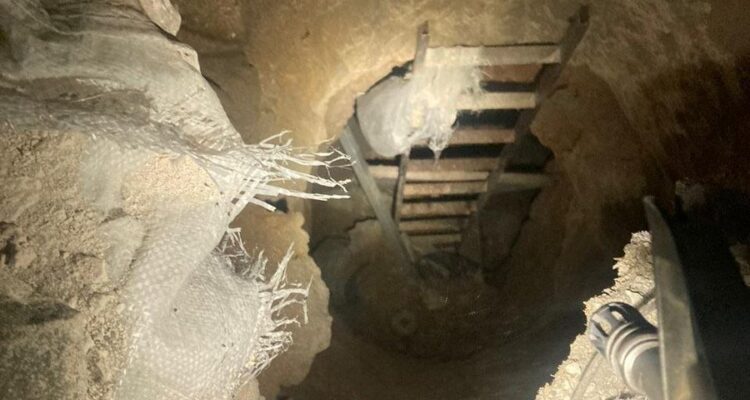The groups worked overnight on Tuesday until Wednesday under the command of the Menashe Brigade with reservists from Dudevan and LOTAR special forces.
By Vered Weiss World of Israel News
In the city of Jenin, the IDF, Shin Bet, and Border Police discovered and destroyed two terror tunnels and three facilities used to produce explosives.
The groups worked overnight on Tuesday until Wednesday under the command of the Menashe Brigade with reservists from Dudevan and LOTAR special forces.
After battling terrorists, the IDF arrested suspects and dismantled the facilities, deactivated explosives, and confiscated significant amounts of ammunition and military supplies.
During the fight with terrorists, one IDF soldier was injured after a terrorist threw an explosive device.
The IDF has been quite active in other areas of Judea and Samara and arrested sixteen wanted terrorists, three of whom were Hamas-affiliated.
In Tammum, they exchanged gunfire with terrorists, who initiated the attack by throwing explosives.
In early November, the IDF launched an extensive operation to stop terrorist activity in Judea and Samara and confiscate weapons.
After an overnight operation on November 5th, more than 60 known terrorists were arrested, with most of them, 46, working closely with Hamas.
Of the 1,000 known terrorists the IDF capture between October 7th and the first week of November, 660 were Hamas-affiliated.
To protect Jewish residents of Judea and Samara from Palestinian terrorism, Israeli Finance Minister Bezalel Smotrich demanded the establishment of security zones.
In the letter, Smotrich calls to “create wide security areas around settlements and roads, and prevent Arabs from approaching them.”
This, he argues, “Is important for at least three reasons: First, security and preventing the approach of Arabs who might use this for terrorist attacks. Second, a sense of security given the great sensitivity of the public and the recruitment of many men into the reserves, which leaves women and children alone. Third, the prevention of friction that could lead to a flare-up of the sector, which [could cause] us great international damage.”





